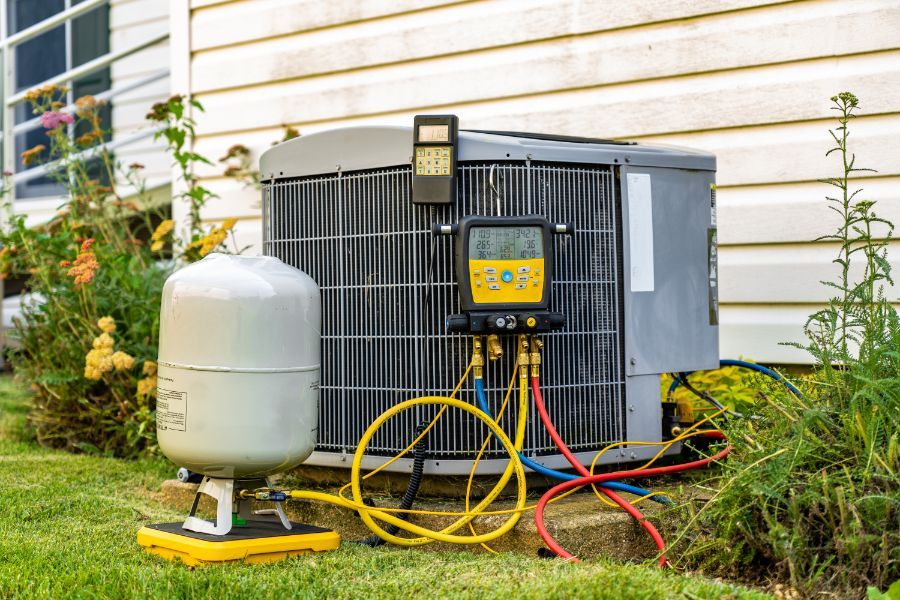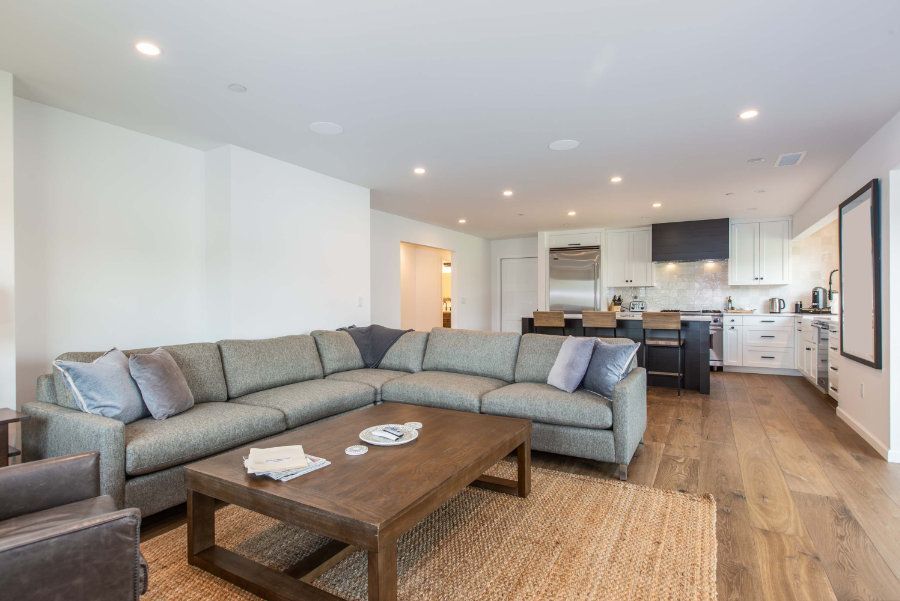5 Reasons to Choose Central A/C vs Mini Split

With summer in full blast, it's the best time to consider installing some air conditioning. While a window unit may be the easiest form of air conditioning to install, they’re unsightly and not very efficient. Proper cooling is necessary to keep your tenants comfortable during these hot months, helping ensure their satisfaction.
Today, we’ll discuss five reasons for choosing central A/C over a mini-split system.
Reason 1: Efficiency
Central A/C was once considered a luxury, and that would drastically increase the electrical bill. However, in recent years, the efficiency of central cooling has increased drastically, especially for large spaces or homes with many different rooms or living areas. This uniform cooling helps avoid hot and cold spots, ensuring a comfortable environment in every room. While a mini-split may be more affordable in some scenarios, they typically have only one or two air handlers, which can result in those hotspots in larger rooms. As well as difficulty covering hallways and bathrooms.
On the other hand, mini-split systems are better suited for smaller rooms or specific areas of a home. However, multiple mini-split units may be required for larger homes, defeating the purpose as they become less efficient and more costly than a
centralized A/C system.
Reason 2: Aesthetic
Central A/C requires ductwork, typically in the attic. These are less visible indoor components, maintaining a cleaner look. The only visible proof of central A/C are the vents and the filter. This allows homes to feel more spacious than homes with mini-split systems. This results in less visible indoor components, maintaining a clean and clean look in your rental.
While easier to install, mini-split systems have large air handlers mounted on walls, which might affect room aesthetics. Central A/C, much like mini-split systems, requires the installation of an outdoor air compressor. Although for central A/C, one compressor can sufficiently cool down every room in the rental, a mini-split system may require more compressors if you want to install an air handler in every living area.
Reason 3: Cost
Central A/C systems generally have higher initial installation costs because of the extensive ductwork and the need for a powerful central unit. Despite the significant upfront investment, central A/C can be more economical for large spaces over time. This can be due to the potential energy savings and the efficiency of cooling the entire home with a single system. Comparatively, mini-split systems come with lower upfront costs, making them an attractive alternative for investors with smaller budgets. Yet, the price can quickly increase if multiple units are needed to cool more than a few rooms. Every additional unit increases the overall installation expense and the electric bill. This makes mini splits far less cost-effective for rentals with more than two bedrooms.
Reason 4: Noise Levels
Central air conditioning systems are known for their quieter operation. This is mainly because the compressor is outdoors, either on the rental side or on the roof. This design ensures that most of the noise is outdoors, keeping the indoor living spaces quiet. The components inside the rental, such as vents and ducts, will usually produce little sound, which can enhance the comfort of your rental property.
Mini-split systems can produce noticeable noise from the indoor air handlers. While not as loud as
window units, the sounds from the fan and compressor within the indoor air handler can be heard. While typically not too loud, the noise can be distracting in higher settings on hotter days.
Reason 5: Durability
Central A/C systems require more complex maintenance because of their extensive ductwork and centralized components. While regular professional servicing is necessary to ensure ideal performance, with proper care, these systems can last over 20 years.
Mini split systems, while offering easier maintenance with simpler cleaning and upkeep, still lack longevity. Although landlords or
property management can often handle basic maintenance tasks, mini splits may have a shorter lifespan than central A/C systems. Early signs of failure may occur within ten years, meaning they might need to be replaced more frequently. This can potentially lead to higher long-term costs when compared to central A/C.
Keeping your tenants cool this summer can be incredibly important to their satisfaction. Satisfied tenants are more likely to renew their leases and provide long-term income. If you need more help deciding which kind of air conditioning system is right for your property or need help managing your rental, we invite you to call us today at (562) 888-0247 or complete our
Owner Application online.





